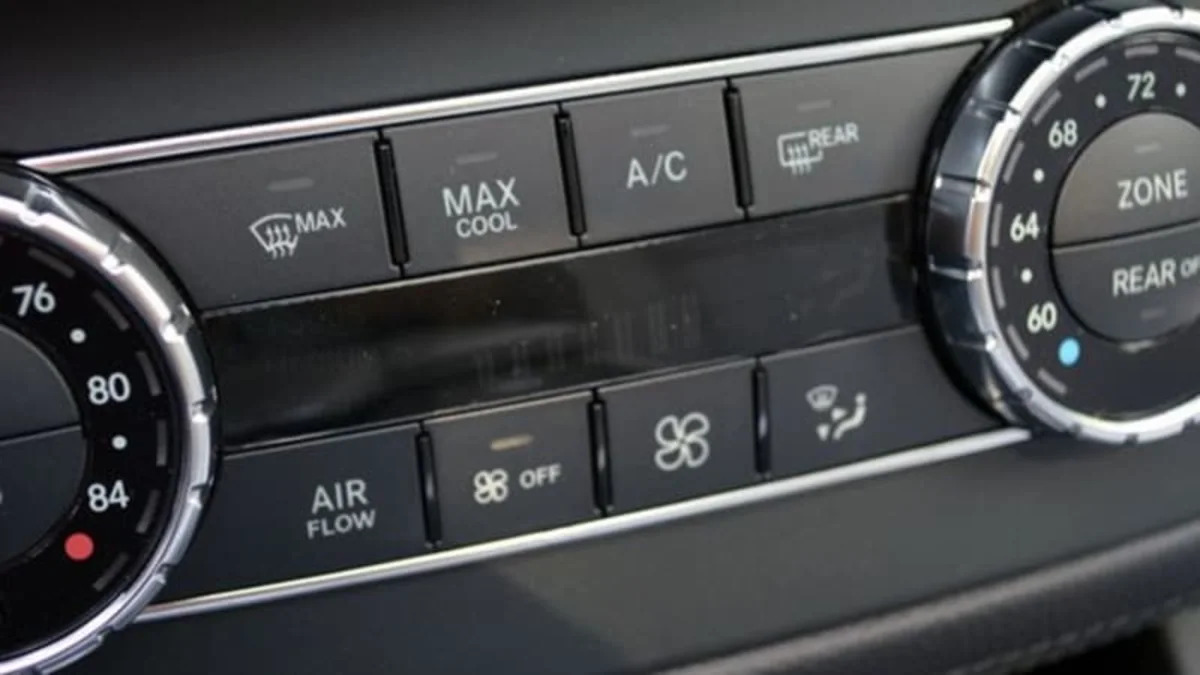BMW has joined Daimler and, potentially, Audi in quitting an automotive industry research program studying a proposed new air conditioning refrigerant, the simply named HFO-1234yf. BMW disagrees with the test methods being used. "We do not want to say the test results are wrong, but we are not convinced the methods applied are sufficient to achieve a definitive conclusion that guarantees our high safety standards," a spokesman for BMW told Reuters.
European regulators want to see the new refrigerant adopted to cut atmospheric emissions which could cause global warming, and it's been researched for years. Daimler expressed safety concerns last year after conducting its own flammability tests, which caused the formation of a working group, the Cooperative Research Program, under the guidance of the International Society of Automotive Engineers (SAE). Daimler confirmed it has left the working group, while Audi could not be reached for comment.
In September, Daimler made its decision to recall all 1,300 of its Mercedes cars that were using HFO-1234yf. The German carmaker had been testing simulated frontal crashes causing leakage of the refrigerant from its air conditioning system. Researchers were finding that when the surface of the turbocharged gasoline engine reached higher operating temperatures, it could spontaneously ignite.
The latest working group was formed in November with Daimler and 12 other major global automakers. In December, the group released a statement that none of these 12 automakers had expressed concern over the safety of HFO-1234yf. Since then, BMW and possibly Audi have joined up with Daimler.
The European Commission had no comment, and has been lobbying for adoption of the new refrigerant to scale back on carbon emissions. The US Environmental Protection Agency also supports the reduction of global warming over the HFC-134a currently in use. The National Highway Traffic Safety Administration may play a role in safety concerns outweighing the environmental benefits.
European regulators want to see the new refrigerant adopted to cut atmospheric emissions which could cause global warming, and it's been researched for years. Daimler expressed safety concerns last year after conducting its own flammability tests, which caused the formation of a working group, the Cooperative Research Program, under the guidance of the International Society of Automotive Engineers (SAE). Daimler confirmed it has left the working group, while Audi could not be reached for comment.
The HFO-1234yf refrigerant is being developed by Honeywell and Dupont. It may lead to a billion-dollar monopoly beginning in 2017 when a previously scheduled phase-out of current refrigerants is completed.HFO-1234yf may lead to a billion-dollar monopoly beginning in 2017.
In September, Daimler made its decision to recall all 1,300 of its Mercedes cars that were using HFO-1234yf. The German carmaker had been testing simulated frontal crashes causing leakage of the refrigerant from its air conditioning system. Researchers were finding that when the surface of the turbocharged gasoline engine reached higher operating temperatures, it could spontaneously ignite.
The latest working group was formed in November with Daimler and 12 other major global automakers. In December, the group released a statement that none of these 12 automakers had expressed concern over the safety of HFO-1234yf. Since then, BMW and possibly Audi have joined up with Daimler.
The European Commission had no comment, and has been lobbying for adoption of the new refrigerant to scale back on carbon emissions. The US Environmental Protection Agency also supports the reduction of global warming over the HFC-134a currently in use. The National Highway Traffic Safety Administration may play a role in safety concerns outweighing the environmental benefits.


Sign in to post
Please sign in to leave a comment.
Continue